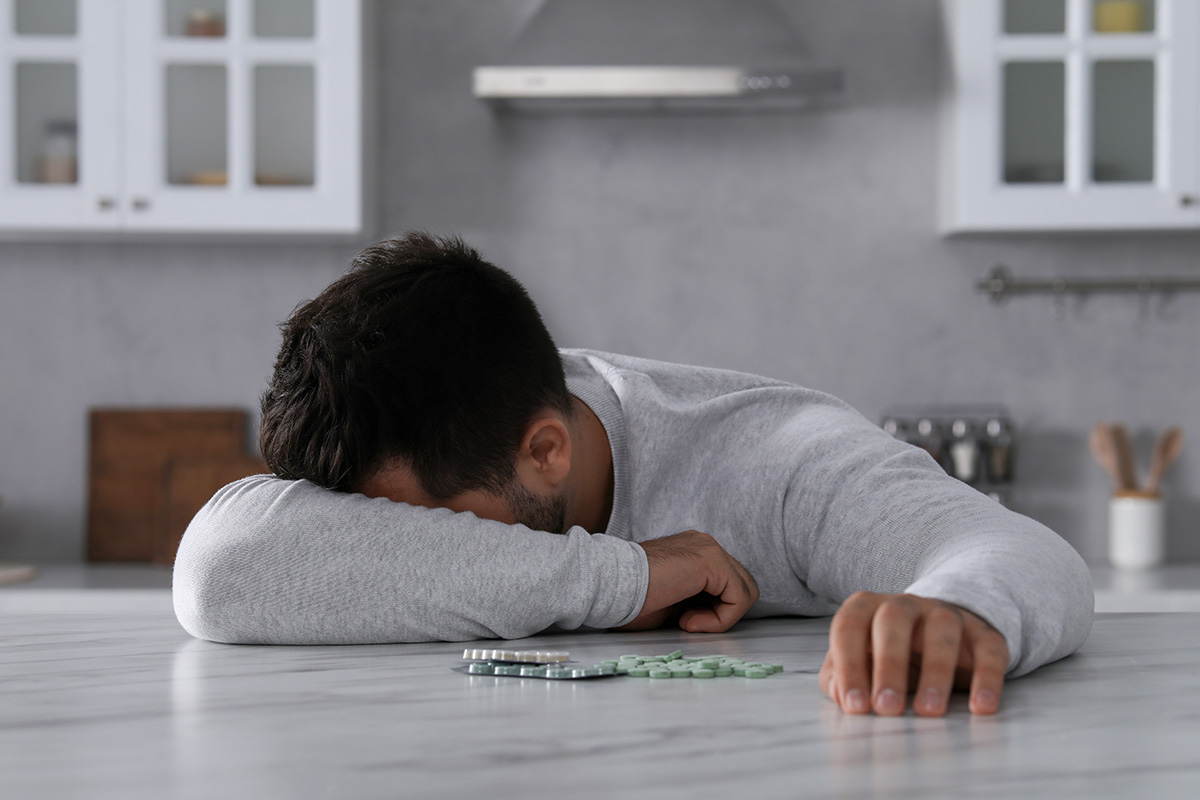
Do you struggle with sleep, and have thought about sleep supplements to help?
From insomnia to snoring, sleep apnea to restless nights, too many of us fail to get enough good quality sleep. This has negative implications for our mood, performance, concentration, safety, and overall health. When this is an ongoing problem, it’s tempting to look for any solution available and, for some people, this means turning to pharmaceuticals that promote sleep.
Using medicines like sleeping pills, antihistamines (diphenhydramine), muscle relaxant/sleep aids (doxylamine succinate), and opiate (painkiller) medications (e.g. codeine) for sleep can be a slippery slope; not only are they not good for you physically or psychologically (and should only ever be used for a very short period under strict medical advice and supervision), they can make you feel sluggish the next day and quickly become habit forming and lead to drug tolerance. They can also be addictive.
Non-pharmaceutical sleep supplements are a popular mainstream choice – but do they work? And are they safe?
Sleep issues are very common…
According to the Australian Institute of Health and Welfare, almost half of all Australian adults experience sleep problems. Furthermore, habitually getting too little or too much sleep is associated with increased risks of cardiovascular disease, coronary heart disease, stroke, diabetes, dementia, and more. Alarming numbers of adolescents even fail to meet sleep guidelines on school nights.
The US Sleep Foundation reported in September 2023 that:
- More than one-third of adults get fewer than seven hours of sleep most nights.
- 7% of adults take a nap every day; the average length of this is one hour.
- 10-15% of people report chronic insomnia. Women are 40% more likely than men to have insomnia. 55% of nurses and 34% of active-duty military service members experience insomnia. It impacts 75% of senior adults.
- The economic impact of insufficient sleep in the USA is more than $411 billion (USD) every year.
- The annual cost of workplace accidents and errors due to insomnia is $31.1 billion (USD).
- Driving while drowsy directly causes more than 6,000 fatal road accidents in the USA annually.
There are numerous options and lifestyle changes one may implement to improve sleep quality. Herbal and natural supplements are among these.
Natural Sleep Supplements
Sleep supplements are over-the-counter remedies that are marketed as effective for promoting a better night’s sleep. From herbal tisanes and teas using ingredients like chamomile to taking valerian root, cannabidiol (where it is available legally), or synthetic melatonin, these have different levels of effectiveness.
According to the Harvard University-affiliated Brigham & Women’s Hospital Department of Behavioural Sleep Medicine, there is evidence to support the use of some supplements. Care must be taken, however, when used by people with certain medical conditions, during pregnancy and breastfeeding, or when other medications are being taken.
**ALWAYS CHECK WITH YOUR DOCTOR OR PHARMACIST BEFORE USING A SLEEP SUPPLEMENT IF YOU HAVE A MEDICAL CONDITION OR ARE TAKING OTHER MEDICATIONS.
MANY HAVE POSSIBLE SIDE EFFECTS. ONLY TAKE IN RECOMMENDED DOSAGES**
Chamomile – is derived from the chamomile flower, which is a member of the daisy family. Safe and mild, it has been used by humans for thousands of years and is usually drunk as a herbal tea. Widely used as a mild tranquilliser and sleep-inducer, it has several other benefits including aiding relaxation, reducing inflammation, reducing menstrual discomfort, lowering blood sugar in people with diabetes, and relieving symptoms of the common cold. It also has antioxidant properties.
Magnesium – is an essential mineral that is important for cardiac health, brain function, and many other physiological processes. It helps to calm the mind and body, facilitating better sleep. Magnesium acts on melatonin production, relaxes muscles, and optimises both sleep quality and quantity. Some cases of insomnia have been directly linked to insufficient magnesium in the body, especially in older people. It can be taken alone or in combination with other vitamins or sleep aids.
Melatonin – is a naturally occurring hormone in the brain that helps regulate the sleep-wake cycle. Its levels should naturally rise around two hours before bedtime, signalling to the brain that it’s time to sleep. Synthetic melatonin is available as a supplemental over-the-counter or in larger dosage via prescription. It has been demonstrated in clinical trials to benefit people with jet lag and circadian rhythm disorders and may offer limited benefits for insomnia. It may help insomniacs fall asleep more quickly, and those night owls who fall asleep very late and wake very late. It’s unsuitable for use in people with autoimmune disorders, seizure disorders, depression, or who are pregnant or breastfeeding.
Ashwagandha – widely used in Ayurvedic medicine, ashwagandha root extract lowers stress and enables better quality sleep. Taken before sleep in supplement form, it helps users fall asleep more quickly, sleep longer and more restfully, and wake less during the night. Mental alertness in the morning also improves. It helps balance stress hormones, reduces anxiety, and has antioxidant, anti-inflammatory, and immune-modulating effects. It can be taken in pill, powder, tea, or liquid extract form.
Lavender – is a fragrant purple or white flowering plant found worldwide. Its distinctive, soothing aroma enhances sleep, helps treat headaches, and improves symptoms of sleep disturbances. It can be used as aromatherapy (lavender oil) or as a herbal tea/tisane ingredient (dried flowers). Be careful with oral intake of lavender flowers and never ingest lavender oil except through aromatherapy.
Passionflower – is a popular sleep aid that has sleep-promoting effects and the therapeutic species is native to North America. It is available in tea form and has been shown to slightly improve sleep quality.
Valerian – is a flowering plant native to Europe and Asia. Its roots and stems have been used to make sleep aids since ancient times. Taken in tablet form or as a tea, it is relaxing and mildly sedating and has also been used to assist with the symptoms of anxiety, depression, and menopause. It can, however, cause very vivid dreaming in some people, which may be anything but conducive to a restful night’s sleep.
CBD – cannabidiol is an active compound derived from the hemp plant. It does not produce the “high” that the THC in other cannabis products does, but can induce calmness. CBD oil has been legal in Australia since 2016 but it is highly regulated and has stringent restrictions. It is currently only legally accessible through a GP, specialist doctor, or clinical trial participation.
Other sleep supplement options include Glycine, Tryptophan, Ginko biloba, Lemon Balm, L-theanine, and Kava.
Stop Snoring and Improve Sleep Quality with SnoreMD
Do you snore?
If so, it is most certainly having a detrimental effect on your quality of sleep.
Fortunately, there are simple, affordable ways to minimise and even prevent snoring – and SnoreMD is an incredibly effective solution.
A snoring mouthguard, SnoreMD is a safe, comfortable mandibular advancement device. Budget-friendly, reusable, and washable, it is worn in the mouth while you sleep and works by gently moving the lower jaw slightly forward. This helps to open the airways and prevent soft tissue vibrations in the mouth and throat that cause snoring.
Explore how SnoreMD works today or buy yours now. We also provide a vast catalogue of helpful, interesting information relating to snoring and sleep in our News.


